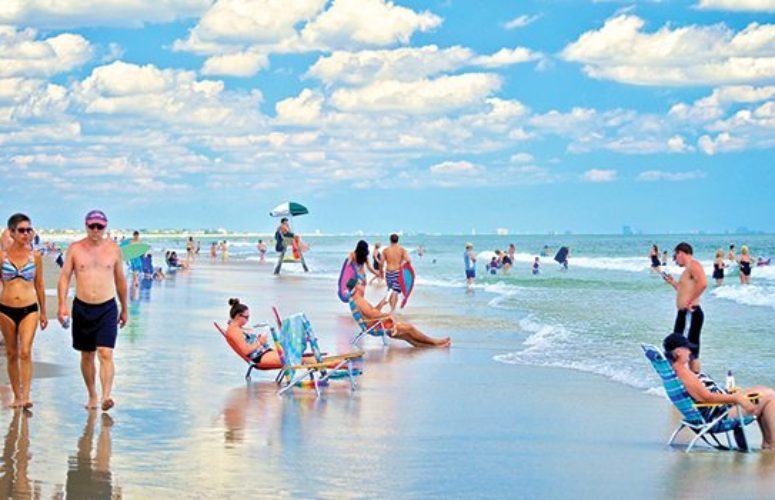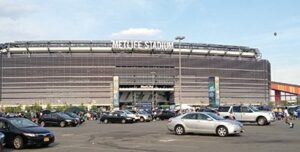
Touting Tourism
Despite Atlantic City’s casino-closing woes, New Jersey tourism is faring well, overall.
By George N. Saliba, Managing Editor On May 18, 2015One might expect the Garden State’s tourism industry to be listless, especially given Atlantic City’s widely reported casino closings and the perception by some persons that the entire Jersey Shore is still coping with Superstorm Sandy’s aftermath. Instead, the truth is that while Atlantic City revenues did decline in 2014, statewide tourism demand reached a record $42.1 billion, an increase of 3.8 percent when compared to 2013. According to Tourism Economics, an Oxford Economics Company, “favorable weather” propelled strong growth in bed tax receipts for shore counties in the summer months, yielding a nearly 10 percent increase compared to the prior year.
Overall, at the New Jersey Conference on Tourism recently held in Atlantic City, Lt. Govennor Kim Guadagno declared: “We have bounced back from an economic recession. We have bounced back from Superstorm Sandy. In fact, we have set record-breaking [tourism] numbers since Superstorm Sandy hit the shores of New Jersey. And, I know it is hard to believe, but as Jim Wood [of Meet AC] just said, we are already bouncing back from the storm that has buffeted Atlantic City … The good news is that Atlantic City is – and will remain – the go-to tourist destination in New Jersey. The bad news, of course, is what we have seen in [Atlantic City], the past year. But, we are done with that. We’re putting those days behind us.”
Guadagno added that travel and tourism remains a “priority” in New Jersey and that it accounts for 315,000 direct jobs. When one includes indirect impacts, more than half a million jobs – or 9.9 percent of the state’s entire workforce – is represented by travel and tourism.
Of course, tourism encompasses more than visiting casinos or beaches, and can include attending the New Jersey Performing Arts Center, the Bergen Performing Arts Center and MetLife Stadium, for example. Additionally, there are numerous historic sites associated with the Revolutionary War, which attract visitors from across the entire United States.
Atlantic City
As mentioned, 2014 was a strenuous time for New Jersey’s casino industry, which has been facing stiff competition from online gambling, as well as from casinos in Pennsylvania, New York and Connecticut. Atlantic City’s Trump Plaza and Revel casinos were both shuttered in September 2014, while Showboat and Atlantic Club closed in August and January, respectively. Revel casino was recently sold to Glenn Straub’s Polo North Country Club, but for $82 million, a fraction of the $2.4 billion it cost to built.
Atlantic City has been financially pinched by its casino closings, and, simultaneously, thousands of former casino workers are still seeking new employment. In January, Governor Christie signed an executive order to install a financial emergency management team in the city, to help the locale cope with a 35 percent decline in tax ratables since last year. The emergency managers – Kevin Lavin and Kevyn Orr – foresee a liquidity crisis in 2015, and recently recommended $10 million in budget cuts and other measures including layoffs, and mediators for negotiations with casinos and unions. This year, Atlantic City is expected to have a $101-million deficit, and it is unclear how the city will regain its financial footing.
Yet, against this grim backdrop, Jim Wood, president and CEO of the non-profit MEET AC, says, “Our job now – for MEET AC – is to attract meetings and conventions into Atlantic City, and that is what we are focused on. We ask ourselves, ‘How are we doing?’ We started that job in June 23 of last year, and we had a really short six months. We had a great team of individuals that we brought on board, for MEET AC. The good news is that we surpassed our booking room night goals – we booked 172,000 room nights – which was more than what happened over the past 10 or 15 years. From a convention standpoint, our numbers are up, our numbers are good, and more importantly – in 2015, we are off to a rip-roaring start. We’ve have a lot of bookings, we’ve got a lot more ‘tentatives’ on the books and we have a lot of interest in Atlantic City.”
He added, “We hope to use the meetings and convention piece as a complement to the great gaming and leisure destination that Atlantic City already is. If we can continue to fulfill our mission – and add that layer of business into Atlantic City – it will remain a strong destination, for years to come.”
Tourism Industry Concerns
Regarding tourism overall, Sharon Franz, president of the New Jersey Travel Industry Association and sales and marketing director at Steel Pier, echoing others’ sentiments, says, “Superstorm Sandy is a little bit behind us, although there is still some negative impact. But, that’s not what our focus is. We have different [legislative] bills that we are concerned with: paid sick leave and, school day closings [in the summer].
Regarding paid sick leave, Franz says, “In a seasonal business, it impacts us, because we are such a short season. We are only open 100 days, if that. Therefore, it really would impact the seasonal business, because we don’t have ‘back up’ people to run an [amusement] ride, for instance. It would be a financial burden for us.”
Conclusion
What’s New Jersey’s 2015 tourism outlook? According to Adam Sacks, founder and president of Tourism Economics, “Unemployment continues to fall. When you think about where we were in 2010, we were flooded with 10 percent unemployment. And it is now below 6 percent unemployment in the United States. Wage growth is now beginning to take hold. We saw the headlines of Walmart increasing its minimum wage. Well, that actually is something we fully expected from a market perspective, because of the tightening labor market. Also, the number of companies that are planning wage increases shows that wage increases are on the way. They are going to continue to gain traction over the coming year, which of course is going to fuel travel. Consumers are feeling more cheerful than they have, in years. [Regarding] consumer sentiment, you can see that it is now where it was before the Great Recession, and everyone is feeling pretty good. What’s fascinating is that it shot up, as regular gasoline prices have gone down. How important is the drop in fuel prices? Well, when we measured out across household consumption across the whole US, lower fuel prices – where they stand now – are going to save the average household $1,000, this year. That’s $1,000 for a vacation to New Jersey. Our forecast modeling for the state of New Jersey, where steady growth is forecast over the period of 2018, is getting more than 100 million visitors [compared to] our watershed peak last year of 93 million. This is where I think this becomes a little bit strategic. What we have seen in recent years is growth in visits to New Jersey outpacing growth in spending; while the volume of visitors is there, the yield hasn’t been there to the same degree. Well, we see that flipping in 2015. So, while [there will be] somewhat slower grow in visits in 2015 and beyond, now is the time when yield begins to get traction and grow at a faster rate. Per-visitor spending will be growing.”
Discussing the Meadowlands Merger
New Jersey Sports and Exposition Authority and New Jersey Meadowlands Commission merger unfolds
This winter, Governor Chris Christie signed legislation merging the New Jersey Sports and Exposition Authority (an independent authority established in 1971 to oversee the Meadowlands Sports Complex) with the New Jersey Meadowlands Commission (a zoning, planning and regulatory agency established in 1969), creating the Meadowlands Regional Commission. Among other objectives, the merger aims to reduce costs.
Jim Kirkos, president and CEO of a separate entity – the Meadowlands Regional Chamber – explains, “The Christie Administration and the Legislature decided to combine the two agencies, and consolidating government is always welcomed. However, in that process, we can’t stall the good things that came out of both agencies. We want the best from both agencies to be put into this new agency.
“We want what’s efficient, and to allow them to transition into a new operation in which [developers] will know [whom they should approach]. Right now, developers are not sure whether they are supposed to go to the local municipality, or go to the Meadowlands Commission. They say, ‘Where do I file my application?’ There is going to be a little bit of a period of transition, and until that transition is over, my recommendation to the new Meadowland Regional Commission would be to communicate frequently about all the new processes.”
The merger occurs at a time when the American Dream shopping and entertainment complex is expected to become a reality, and, simultaneously, commercial real estate in the Meadowlands is booming: warehouses are being redeveloped and office space vacancy rates are low. Kirkos says, “We want to capitalize on [all] that.”
Additionally, the Meadowland Regional Chamber’s vision includes a convention center, a casino at the sports complex, more hotels and mass transit connectivity.
Kirkos explains, “That can create an incredible economy that can drive and power the region for the next 20 years, just like the original sports complex did in the early 1970s. We see the opportunity for that to take place. If this new, [merged] entity is driven by the mission of helping to facilitate economic growth and quality of life in the region, this will be an exercise that will prove to be terrific.”
When American Dream opens, it will become a primary destination, but, now, the Meadowlands is an inexpensive alternative to New York City, with nearly 10,000 hotel rooms.
Kirkos explains, “There are not many places in the country that are not a primary destination that have our quantity of hotel rooms … We absorbed the Super Bowl without blinking an eye. Between the New York capacity and the New Jersey capacity, we absorbed all those hotel rooms, and there was excess. How does [the merger] potentially affect tourism? I don’t know that it negatively affects it. It can positively affect it, if they find the means of allocating some of the revenue that is generated from this [new legislation’s additional 3 percent hotel] tax, to promoting tourism in this region.”
Related Articles:







